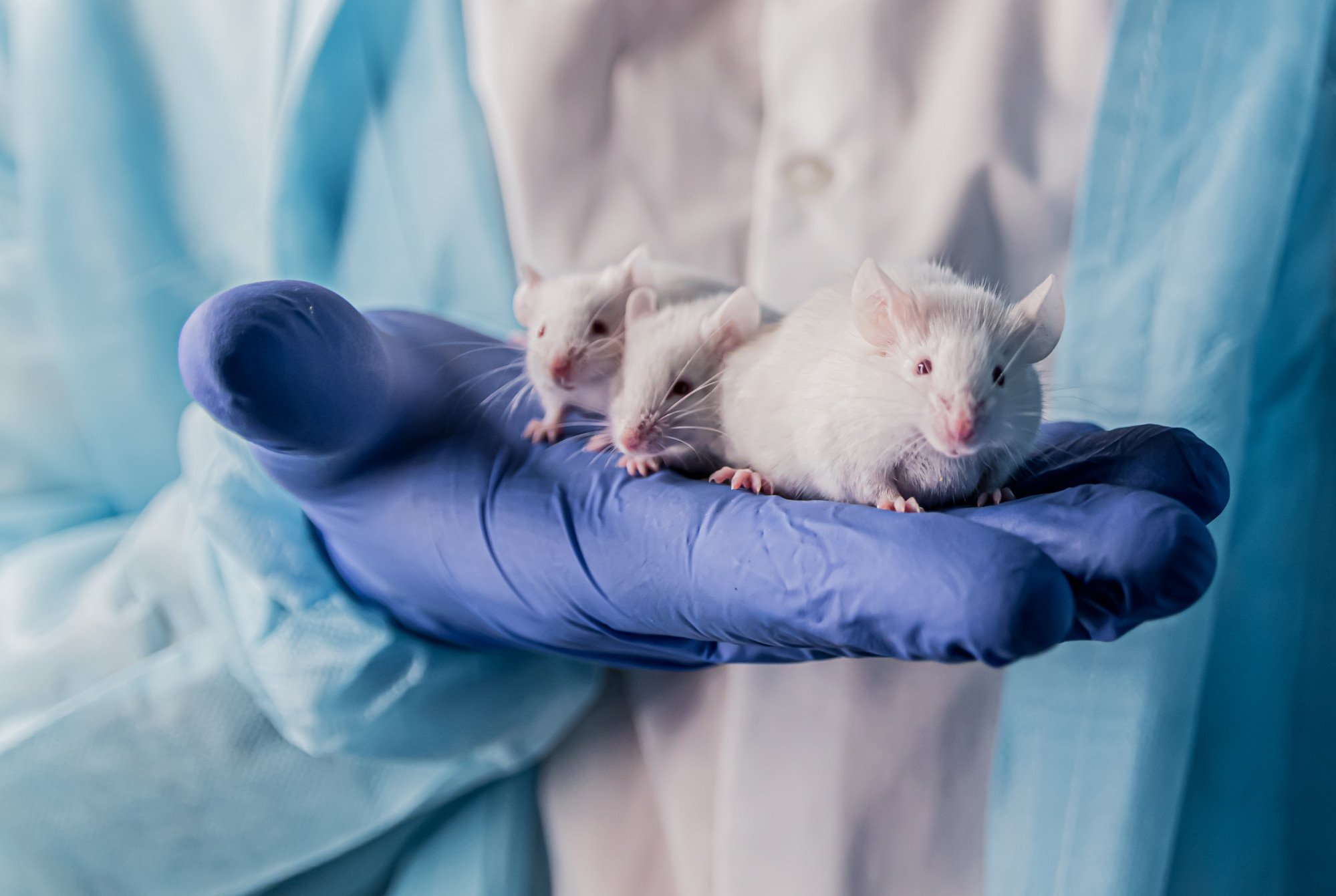
A gene variant that helps regulate body weight could aid in tackling obesity, researchers studying it say.
The ZFHX3 gene mutation – thought to exist in just 4 per cent of people – has been found to control parts of the brain responsible for appetite.
Scientists at Nottingham Trent University and the MRC Harwell institute, both in the United Kingdom, have uncovered the mechanism which, in mice, allows the mutated gene to play a key role in regulating appetite, weight and the insulin hormone – which helps keep blood sugar under control and prevents diabetes complications.
The team found that it can affect a region of the brain known as the hypothalamus – which controls appetite, food intake, hunger and thirst – by switching on and off the function of other genes there.

The ZFHX3 gene mutation is thought to occur in 4 per cent of people, and researchers think it is likely to contribute to a natural ability to stick to diets and eat less. Photo: Shutterstock
The researchers say understanding this pathway, which has been reported in The Federation of American Societies for Experimental Biology Journal, could pave the way for new targeted weight-loss therapies.
Dr Rebecca Dumbell, a researcher in Nottingham Trent University’s School of Science and Technology, says: “For the first time, we have demonstrated a role for this gene to alter growth and energy balance with a protein-altering mutation similar to a variant found at low frequency in the human population.”

Dr Rebecca Dumbell, a researcher at Nottingham Trent University’s School of Science. Photo: Nottingham Trent University
“Understanding what is happening in those who have the mutation paves the way to exploring potential new weight-loss intervention targets for all people.”
Dumbell believes the ZFHX3 mutation, which plays a similar role in mice and people, may “explain a way in which some people have a smaller appetite, and so tend not to gain as much weight as others”.
While everyone has the ZFHX3 gene, the specific mutation driving this mechanism is thought to exist in only a small percentage of people.
“It is likely one of many different mutations that make people different in their natural ability to stick to a diet in the first place,” Dumbell says.
For the study, the researchers monitored the food intake of mice with the mutated ZFHX3 gene alongside those who did not have the gene variation.

The study, carried out on laboratory mice, found that those with the ZFHX3 mutation had a lower food intake and weighed less than those without it. Photo: Shutterstock
They found those with the mutation had a lower food intake, a shorter body length, and lower levels of insulin and another hormone known as leptin, which helps to regulate body weight.
The mice also ate about 12 per cent less at one year old and weighed about 20 per cent less than those without the mutation. Laboratory mice generally live from two to two and a half years, longer than those in the wild, which don’t usually live beyond a year to a year and a half.
The researchers say the lower insulin levels suggest that the mice with less body fat have healthier blood sugar regulation and, therefore, are less likely to be at risk from conditions such as type 2 diabetes and heart disease.
Dumbell, who received £100,000 (US$126,000) of funding from the UK’s Academy of Medical Sciences as part of a two-year project to explore the gene’s role, says: “Our future work will look at how the ZFHX3 gene acts in key parts of the brain; this will help narrow down exactly how it works to change how much the mice eat, or how fast their metabolism is.”
The current work shows that the gene does this, but does not show how.
“Understanding how this works will (also) allow us to understand how different people might struggle more to maintain a ‘healthy’ weight,” Dumbell says.
Like what you read? Follow SCMP Lifestyle on Facebook, Twitter and Instagram. You can also sign up for our eNewsletter here.
News Related-
Using sites like LinkedIn can trigger imposter syndrome, study suggests
-
Why Gen Z fear they will raise a generation of ‘terribly behaved’ iPad kids, stoking TikTok debate about screen time
-
West Africa responds to huge diphtheria outbreaks
-
Study reveals which people are most likely to die from sepsis
-
How to stay safe over Thanksgiving as respiratory virus activity ticks up in parts of the US
-
Several more children sickened by fruit pouches tainted with lead, FDA says
-
Nevada judge rejects attempt to get abortion protections on 2024 ballot
-
What causes skin to itch? New research pinpoints a previously unknown factor
-
Traditional media more trustworthy for science news, poll suggests
-
Long-term use of ADHD drugs could bring higher risk of heart diseases – study
-
Nutrient found in beef and dairy products found to help fight cancer
-
Horror as fly found inside Missouri man’s intestines
-
‘Utterly unacceptable’ Lucy Letby was able to kill children like nurse Beverley Allitt, says inquiry chair
-
Abortion rates in US increased by 5% in 2021, the final year it remained a constitutional right under Roe: CDC
